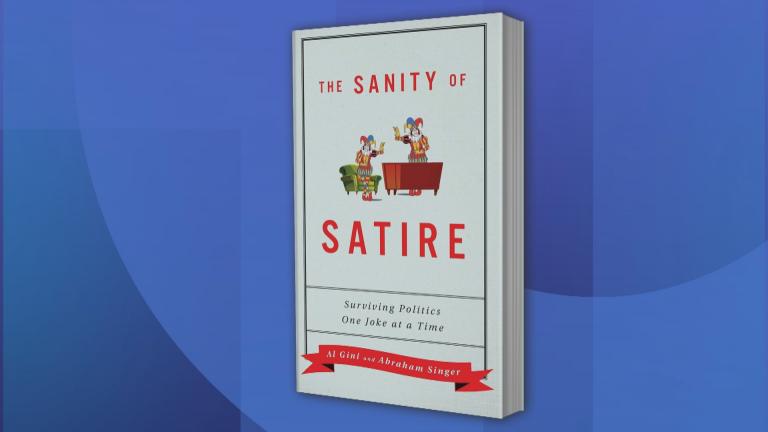Are leaders born or bred? Loyola University business ethics professor Al Gini joins us on Chicago Tonight at 7:00 pm to discuss his book, 10 Virtues of Outstanding Leaders. Read an excerpt below:
Ethics, Virtue, and Character
The moral quality of leadership is summed up in the understanding that real leaders are ethical and possess both virtue and character. “Ethics,” “virtue,” and “character” are all classical Greek concepts. In antiquity, ethics, ēthikē ( ἠθική), started off as the study of human behavior or custom. It was used to identify the distinguishing values of a civilization, a community, or a person. The corresponding Latin word, mos (“custom”), lives on in English words like “mores,” “moral(ity),” and “morals.” While many people believe that “morality” and “ethics” have different meanings, we will use them interchangeably. An ethical person is someone of moral integrity. A moral philosopher is also called an ethicist.
Since the time of the Greeks, the discipline of ethics – morality – has focused on the question: “What ought I to do with others?” In private conversations with one of the authors, business ethicist Ed Freeman and theologian Frank Griswald emphasize this understanding. “Ethics,” says Freeman, “is how we treat people face to face, person to person, day in and day out over a prolonged period of time.” In Griswald’s view, “ethics is about the rules we choose to live by once we decide we want to live together.” To say, therefore, that leadership is value-based and ethically driven and that real leaders are ethical is to say that leaders are always concerned with the question “What ought I to do?” They take seriously their responsibility toward all the people impacted by their decisions.
In the Greek world of Plato and Aristotle, aretē ( ρετή) – “virtue” – meant something that is more appropriately translated as “excellence.” For the Greeks there were non-ethical, non-moral virtues. Beauty, martial skills, or athletic prowess were all excellences, virtues. But, when we speak of virtue, it is primarily the moral excellences we have in mind. What are the qualities of a person that lead to that person’s flourishing and to the flourishing of those around him/her? Honesty and fairness are among the crucial virtues for organizational leadership and success. In the chapters ahead we explore these and other moral virtues that are essential to leadership.
Greek philosophers insisted that virtue is a habit. By this they meant that it is not a one-time deed, but a skill or a disposition to act in a certain way, which must be acquired through repetition and exercise. To remain in force and grow, virtue must be practiced again and again, and demonstrated across a range of life choices. Here virtue’s wider meaning as “excellence” is helpful. Can we achieve high degrees of athletic performance without training? Can we develop musical skills without practice? The same reasoning applies to the moral virtues. Greek philosophers emphasized this when they said: “Do not judge a person until (s)he is dead.” In part they believed this because only a completed life can stand as evidence to the full achievement of one’s virtue.
The word “character” comes from a Greek noun meaning “etching” or “engraving”: charaktēr ( χαρακτήρ), itself derived from the verb charassein (“to engrave”). Originally charaktēr designated the marks impressed on a coin. Applied to human beings, charakēr refers to the enduring marks or etched-in factors that have been impressed on a person’s mind ( psuchē , “soul”). These consist in the person’s inborn talents as well as in the learned traits – those acquired through education and experience. These “engravings” set us apart, define us, and motivate our behavior.
Although much of character is impressed on us by the environment, the vagaries of time and place, and the biological (genetic) or behavioral influences of our parents, moral character is about what a person chooses to hold dear, to value, and to believe in. If you want to know about a person’s moral character, check their values. People of character value honesty, integrity, and fairness. They value loyalty and, in consistency with the needs of organizational functioning, they are compassionate. They care about other people. In our view, character in precisely this sense is the foundation of leadership.
Gail Sheehy, in her book Character: America’s Search for Leadership , argues that, while character is the most crucial element of leadership, it is also the most elusive one. In regard to leadership, says Sheehy, character is fundamental and prophetic. “The issues [of leadership],” she claims, “are of today and will change in time. Character is what was yesterday and will be tomorrow.” Character establishes both our day-to-day demeanor and our destiny. Therefore it is not only useful but also essential to examine the character of those who wish to lead us. As a journalist and longtime observer of the political scene, Sheehy contends that the Watergate affair of the early 1970s serves as a perfect example of the links between character and leadership. As Richard Nixon demonstrated so well, “[t]he Presidency is not the place to work out one’s personal pathology.” Leaders rule us, run things, and wield power. Therefore, her argument runs, we must be careful about whom we choose to lead us. Because whom we choose is what we will be. If character is destiny, the destiny our leaders forge will be our own.








